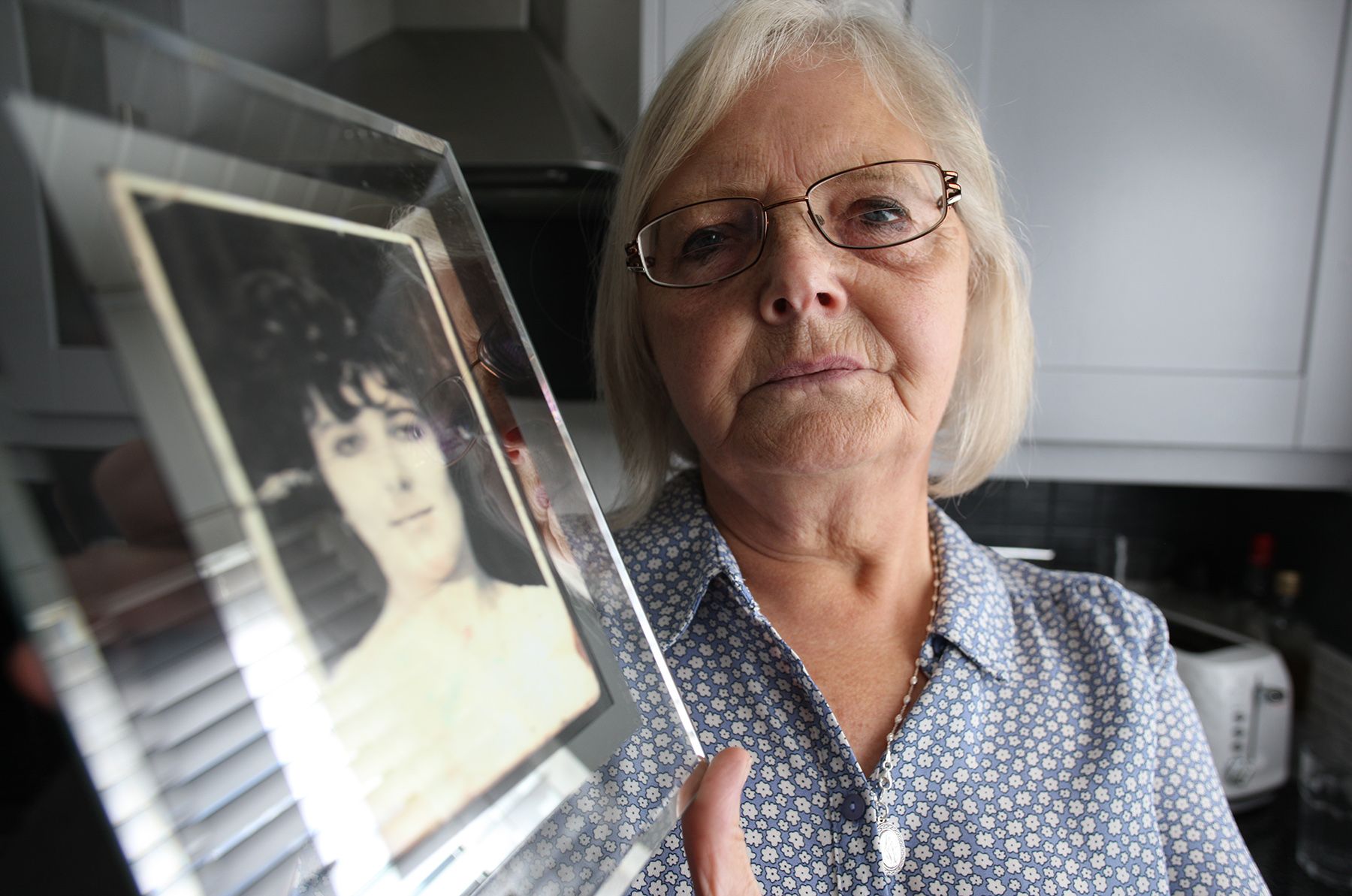THE sister of a North Belfast woman murdered in her flat has called for a fresh inquest, on the 45th anniversary of her death.
Rosaleen O'Kane, a 33-year-old single woman, was found murdered in her flat at Cliftonpark Avenue on September 17, 1976. Her body had been stripped naked, set alight and she had also sustained a fracture to her skull. A second fire had been set in another part of the flat.
The original post-mortem examination in 1976 was unable to determine the exact cause of death because the pathologist could not conclude whether the fracture to her skull had been inflicted before she died or was a consequence of the fire. The same report confirmed that there was no smoke inhalation in Ms O'Kane’s lungs.
Blood and other forensic samples taken during the post-mortem which might have assisted in determining the cause of death and assisted police in their investigation were destroyed the next day in a fire in the Northern Ireland Forensic Laboratory on 18th September 1976.
In 2002 relatives of Miss O'Kane met with senior PSNI officers with a request that the murder investigation into their sister’s death be re-opened. The family has always believed that her murder was sectarian.
At that meeting in 2002 police confirmed that they could not rule out a sectarian motive for the murder of Rosaleen O'Kane.
Since the 2002 meeting with police the family of Rosaleen O'Kane have repeatedly requested that the murder investigation be re-opened.
In October 2004 senior police in the PSNI referred the case to the Serious Crime Review Team (SCRT). From 2002 to 2018 the family pursued requests for a full and proper police investigation.
The SCRT made recommendations of further lines of enquiry in 2011 but ten years on the recommendations have still not been carried out. During that time the investigation was transferred to the Retrospective Murder Investigation Team (REMIT) and then to the Legacy Investigation Branch (LIB).
Lawyers for the family also lodged two requests for a fresh inquest with the Attorney General for NI. The original inquest on the 19th of October 1977 returned an open verdict. That inquest had not been provided with any proper information about the 1976 police investigation and was deprived of any proper effectiveness.
In the absence of a full police investigation a request for a fresh inquest was lodged in May 2016 but was refused in August 2017. A second application was made in January 2018 but was refused in May 2018.
On the 45th anniversary of her murder, her family are challenging the Attorney General for Northern Ireland, the Chief Constable, and the Police Ombudsman to properly investigate Rosaleen's death.
Kathleen Graham, sister of Rosaleen, said: “We would like the truth. Even one bit of truth. Rosaleen was our sister, but she was like our mother. I still miss her every day.”
45TH ANNIVERSARY: Rosaleen O'Kane (33)
Patricia Coyle of Harte Coyle Collins, Solicitors and Advocates said: “There has never been an effective investigation into the death of Rosaleen O'Kane despite the existence of clear lines of enquiry.
"This is completely inexplicable and gives rise to serious concern. It is extremely distressing for the family. Each of the relevant public authorities has the power to secure an effective investigation. The inquest mechanism in Northern Ireland has been particularly important in partially restoring public confidence in the rule of law.
"These mechanisms for investigation remain available in Northern Ireland and the state needs to use them as part of due process for our clients and others who seek the truth. “
On behalf of Relatives For Justice, Mike Ritchie said: “We have been proud to support Kathleen and her family in their long search for justice.
"Like so many other relatives, Kathleen has been living in a kind of limbo waiting for the state to fulfil its responsibilities by investigating Rosaleen’s murder and letting the family know what happened. It’s yet another case that shows how appalling are the British Government’s plans to halt investigations, inquests, and other judicial proceedings into legacy cases."








